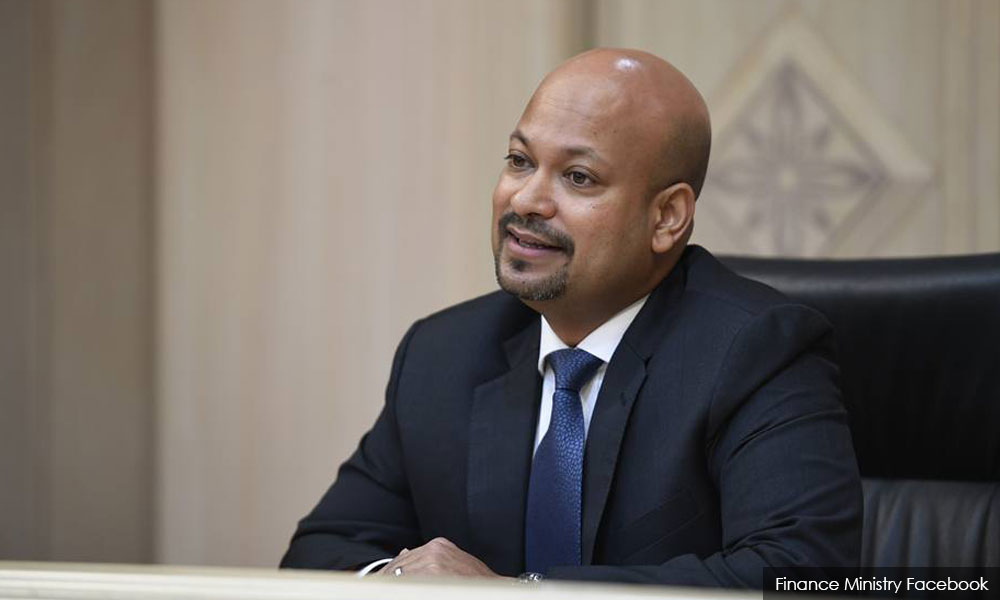
If you are a film buff, you would know how directors of companies are commonly depicted – immaculately dressed men, sitting around a round or oblong table, making important decisions. While movies portray their power, they seldom show the other side – their responsibilities.
The Companies Act 1965 lists the provisions of their duties as directors. In some cases, the breach of such duties can be considered a criminal offence.
Against this backdrop, over the past three months, we have come across several fat cat directors who pay scant attention to their responsibilities as directors.
For instance, 1MDB chief executive officer Arul Kanda Kandasamy was offered an “incentive” of RM5 million to stay back for six months after his employment contract ended. But was this the decision of one man – then-prime minister Najib Abdul Razak – or did the board deliberate and come to a decision?
Before that, news of the RM85,000 monthly salary for Malaysian Aviation Commission (Mavcom) chairperson Abdullah Ahmad raised eyebrows. Who approved the salary? Were the other directors aware of it, or was it (yet again) fixed by the then-prime minister when the commission was set up in 2016?
Then came reports of former Human Resource Development (HRDF) chief executive officer CM Vigneswaran (photo) making almost RM1 million in salaries and perks in 2017.

The reaction from employers who contribute one percent of their employees’ monthly payroll was expected – they kicked up a storm after discovering that several employees had been paid a “performance bonus” of up to six times their monthly salaries.
What do directors do?
But were these windfalls approved by the board of directors? Don’t they owe a duty to employers who are stakeholders?
Peruse the annual reports of government agencies and quangos and one will discover the huge salaries and perks enjoyed by the directors.
On June 1, I wrote: “It… paid RM570,000 in directors' fees. Mavcom had 11 board meetings during a 10-month period. Calculated loosely, each of the eight directors earned RM5,100 for attending each of the 11 meetings. The accounts also show that RM770,000 was spent on travel and accommodation.”
On June 13, I wrote: “According to the accounts, (HRDF) directors’ fees amounted to RM870,667. There are 17 other directors besides the CEO and they include representatives from government departments and agencies. Working on an average, each director received RM51,200.”
But as we pant and straggle towards the 100-day deadline by the government to make changes, more is being unearthed that requires policies and strategies to be re-examined, and perhaps extending the cut-off date.

Arul Kanda’s (photo) salary may have merited mention, discussion and debate in the Dewan Rakyat, but there are scores of overpaid and underworked members of the board of directors in government agencies and related companies.
Many retired civil servants and discarded and discredited politicians have found themselves seats on the board of GLCs.
Although the action and inaction of some have caused the government to lose millions of ringgit, they have not been held responsible, although all of them are governed by the Companies Act. They can be cited for breach of fiduciary duties for any act or omission.
Loss of public money
I have relentlessly pushed for action – civil or criminal – against directors who cause the loss of public money.
In the case of the Port Klang Authority (PKA), I had campaigned for the directors to be charged for breach of fiduciary duties. Following incessant pressure, in 2015, its chairperson Lee Hwa Beng supported a motion to cite the previous directors for breach of fiduciary duties. Unfortunately, it failed.

But there is a glimmer of hope. In 2015 PKA had filed a civil suit against OC Phang (photo) for breach of fiduciary duty as its former general manager and board member in relation to the Port Klang Free Trade Zone (PKFZ).
Phang went to the Federal Court and succeeded in getting 23 former directors being made parties to the suit. These 23, including two former ministers, will have their day in court.
Seeking restitution
While we are awaiting the decision on the principal matters before the court, what is there to stop the government from seeking restitution of their fees that they earned as directors?
Way back in 2012, I wrote about the three directors of the National Feedlot Corporation who literally slept on the job. Alias Mohd Yassin and Manaf Hussein represented the agriculture and finance ministries, respectively, while Mat Ali Hassan was appointed by virtue of him being the Negri Sembilan state secretary.
These appointments were made to “safeguard the interests of the federal government and stakeholders and the state government as it provided the land”.
It is a statutory requirement that the board approves any “investment” through a resolution. However, at no time were these directors told of the purchase of condominiums and other so-called investments. They became aware only after the matter was reported in the media.
So, do they deserve to keep their allowances?
It is my view that directors, members of committee and task forces should be held liable for all shortcomings under their purview.
When there is a success story, they are in the forefront thumping their chests. Then shouldn’t they also be putting their heads down and taking responsibility for the failures?
R NADESWARAN is of the view that directors must sing for their supper. They are paid well, but must pay if they sleep on the job. Comments:citizen.nades22@gmail.com. -Mkini



No comments:
Post a Comment
Note: Only a member of this blog may post a comment.